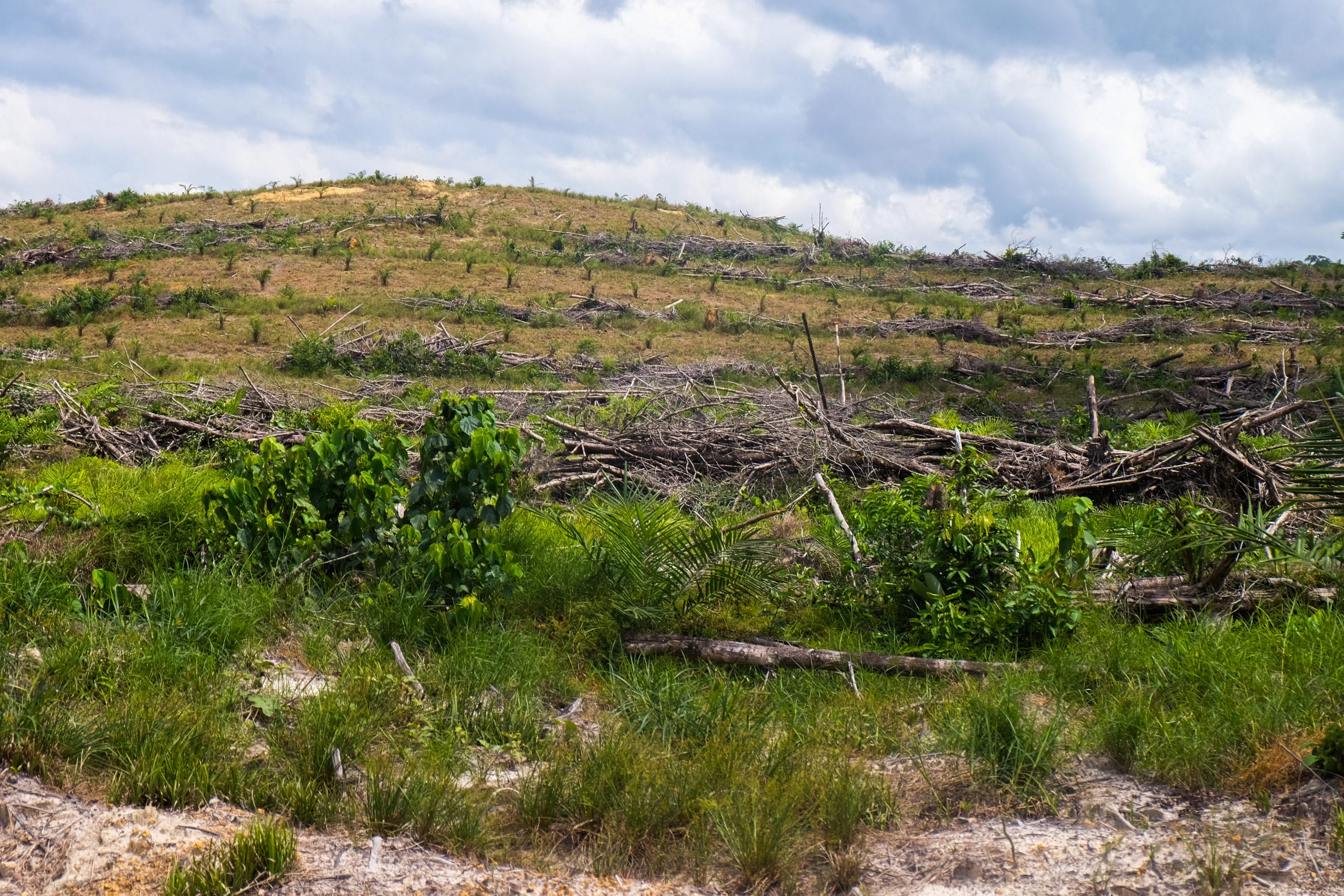- Blog
- Forests
- Land Grabbing, Forests & Finance
- BlackRock’s Big Palm Oil Problem
BlackRock’s Big Palm Oil Problem
by Karina Gonzalez, land, forest & finance organizer

Donate Now!
Your contribution will benefit Friends of the Earth.
Stay Informed
Thanks for your interest in Friends of the Earth. You can find information about us and get in touch the following ways:
In January, Larry Fink, the CEO of BlackRock, released a statementtouting the need for corporations to address climate change. Yet BlackRock, the world’s largest asset manager, has nearly $600 millioninvested in palm oil, making it the largest U.S. investor in this unsustainable industry. Palm oil companies have a long and well-documented history of destroying rainforests, clearing and burning carbon-rich peatlands, abusing workers and displacing indigenous communities — none of which is good for the climate. Despite these horrors, consumer brands continue to drive demand for palm oil, and investors like BlackRock continue to finance it.
By any measure, this is a big problem.
For years, campaigning organizations like Friends of the Earth, Greenpeace and Rainforest Action Network have worked to curb the destructive effects of the palm oil industry and to raise awareness among financiers and consumers. With the establishment of the Roundtable on Sustainable Palm Oil in 2004, many palm oil industry players have been forced to respond to the environmental and human rights impacts of their industry in response to the RSPO’s principles and criteria. Since then however, consensus has grown that the RSPO is inadequate. Environmental groups have pressured many companies to adopt additional No Deforestation, No Peat and No Exploitation policies, or NDPE — voluntary commitments to respect labor and human rights, stop development on peatlands and stop deforestation of high value and high carbon areas.
But a steady stream of research shows that even the largest and most visible palm oil companies have not been meeting their human rights and environmental commitments — and are continuing to devastate the world’s forests.

Asia Monitor Resource Center and Sawit Watch, both forest research groups, recently published a report based on research done in 2017 on three plantations owned by Golden Agri-Resources in Central Kalimantan province, Indonesia. On every plantation they researched, they found serious human rights and labor rights abuses, including occupational health and safety problems, low wages, poor living conditions and systemic gender discrimination. This is especially troubling as GAR, the world’s second largest palm oil company, is a signatory to the U.N. Global Compact, and has adopted — but failed to adequately implement — its own No Exploitation policies.
AMRC and Sawit Watch also found that RSPO audits fail to capture actual labor practices. An investigation of two GAR subsidiaries revealed that the company instructs workers on how they must respond to RSPO auditors to ensure they tell the RSPO what the company wants the RSPO to hear. This is just one way that companies evade RSPO criteria as well as legal labor standards.
Another GAR-related company, Golden Veroleum Liberia, has nearly a decade’s worth of allegations against it. Most of these allegations were affirmed by a 2018 RSPO decision that coincided with the report, “High Risk in the Rainforest,” published by Friends of the Earth groups in Liberia, the Netherlands and the U.S. Golden Veroleum appealed the RSPO decision — and when the appeal was denied, the company quit the RSPO altogether.
In December 2013, Wilmar, the largest palm oil trader in the world, became the first trader to adopt a NDPE policy, not just within its own operations but also those of its suppliers. According to a new report by Greenpeace, “The Final Countdown: Now or Never to Reform the Palm Oil Industry,” Wilmar’s operations still have not fully complied with this policy. Some of its concessions have unresolved land conflicts that include ongoing physical violence and the shooting of two farmers in December 2017. Additionally, Wilmar is currently facing serious allegations of worker exploitation, including forced labor.
A policy is only as good as its implementation. According to Greenpeace’s “The Final Countdown,” the entire industry is failing to implement its sustainability policies. The report reveals that large palm oil traders have:
- failed to establish useful systems for enforcing No Deforestation commitments;
- failed to verify that their supply chains are fully compliant with these commitments;
- failed to require producers in their supply chains to disclose the extent of their operations;
- failed to ensure that companies in their supply chain remedy non-compliant behavior; and
- failed to monitor their supply chain proactively and remove rogue companies.
The palm oil industry has demonstrated it is unable or unwilling to change its unsustainable ways. One thing this failure makes clear is that investors in the industry, like BlackRock, are doing little to drive improvements despite all their talk.
BlackRock is the largest U.S. financier of palm oil. Besides a handful of interests directly beholden to GAR’s owner (one of Indonesia’s most powerful families), BlackRock is also among the top three largest U.S. investors in GAR. But judging by the actions of the company, BlackRock is failing to hold this company — or any of its palm oil investees — accountable.
Enabled by BlackRock’s money, dirty palm oil continues to be produced, traded and consumed with no consequence — and rampant deforestation continues to drive rapid climate change. If BlackRock claims to care about climate change, it needs to address its big palm oil problem.
To learn more about BlackRock’s big climate problem, go to: https://www.blackrocksbigproblem.com/
